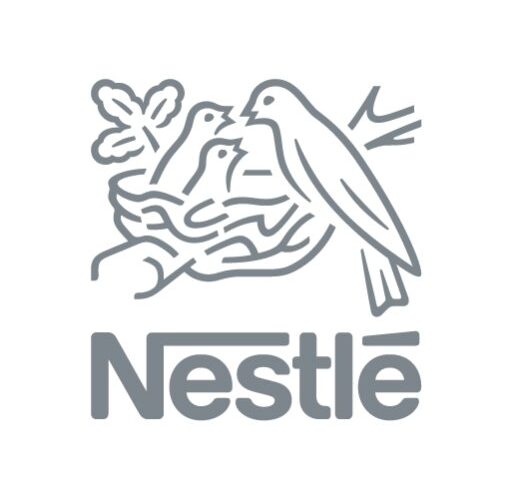#NestleIndia #BonusShares #StockMarketNews #FMCG #ShareholderUpdate #EquityMarkets #InvestorNews #StockSplit #RetailInvesting #LiquidityBoost #CorporateActions #FinancialNews
New Delhi— Nestlé India has announced its first-ever 1:1 bonus share issue, marking a significant milestone in the FMCG giant’s corporate history. Under this move, shareholders will receive one bonus share for every existing share they hold.
The record date for determining eligible shareholders was set for August 8, 2025. Investors needed to own shares by August 7, 2025, in line with the T+1 settlement cycle, to qualify for the bonus allocation.
This marks the first time in nearly three decades that the company has rewarded investors with a bonus issue, following its last bonus declaration in 1996. The decision comes just over a year after Nestlé India executed a stock split in January 2024, when the face value of each share was reduced from ₹10 to ₹1, increasing the total number of shares in circulation and making them more affordable for retail investors.
Price Drop is Technical, Not a Loss
Following the bonus issue, Nestlé India’s stock price appeared to fall by nearly 50% on August 8, sparking concern among some market participants. However, the decline was purely mathematical—the stock price adjusted to reflect the doubled number of shares in circulation.
For example, if an investor previously held one share worth ₹25,000, they now hold two shares worth ₹12,500 each. The total value of holdings remains the same at ₹25,000. Analysts have stressed that this adjustment has no impact on shareholder wealth and is standard practice for bonus issues.
Market Reaction
The announcement of the bonus issue was met with positive sentiment in the market. In the days leading up to the record date, Nestlé India’s shares rallied by nearly 4% as investors welcomed the move. The bonus issue is expected to increase the stock’s liquidity, improve affordability for small investors, and potentially broaden the shareholder base.
Why a Bonus Issue Now?
Corporate experts believe that Nestlé India’s decision to announce a bonus issue at this point is a strategic step to reward shareholders and align with global practices that enhance market participation. By doubling the number of shares without changing the company’s market capitalization, Nestlé India aims to:
-
Improve liquidity in the secondary market.
-
Make the stock more accessible to retail investors.
-
Reinforce shareholder confidence amid steady growth in revenues despite recent profit fluctuations.
The move also complements the January 2024 stock split, which was widely seen as a step to make the company’s shares more affordable and increase trading activity.
Business Performance Snapshot
For the quarter ending June 2025 (Q1 FY26), Nestlé India reported a 13.4% year-on-year decline in net profit, falling from ₹747 crore in the same quarter last year to ₹647 crore. Despite the profit drop, the company’s revenue grew by around 6%, underscoring continued resilience in demand for its product portfolio, which includes brands like Maggi, Nescafé, KitKat, and Milkmaid.
Analysts note that while profit margins have come under some pressure due to input cost volatility and marketing spends, the revenue growth trajectory indicates strong underlying demand.
Investor Impact
The key points for investors to note about this bonus issue are:
-
Shareholding Doubles: Investors now hold twice the number of shares, each valued at roughly half the pre-bonus price.
-
No Change in Portfolio Value: The overall investment value remains the same immediately after the bonus.
-
Tax Treatment: Bonus shares are considered separate assets for capital gains purposes, with the acquisition cost taken as zero. This could have future tax implications upon sale.
-
Liquidity Advantage: Increased supply of shares may make it easier for investors to buy and sell without impacting price significantly.
Financial advisors suggest that while the bonus issue itself does not create immediate monetary gain, it can be beneficial in the long run, especially if the stock appreciates over time.
Looking Ahead
Nestlé India’s bonus share announcement comes at a time when several large-cap companies are using similar strategies to enhance retail investor participation. The move could make the stock more appealing to first-time equity investors who may have previously found its high price a barrier to entry.
The company’s focus on expanding its product portfolio, strengthening distribution in rural markets, and capitalizing on India’s growing consumer base remains intact. With FMCG demand expected to remain steady despite inflationary headwinds, market watchers believe Nestlé India’s fundamentals continue to support long-term growth.
Conclusion:
Nestlé India’s first-ever 1:1 bonus share issue is both a historic and strategic decision. While the apparent halving of its stock price may have raised eyebrows initially, it is purely a technical adjustment with no negative effect on investor wealth. For shareholders, this move is a sign of the company’s confidence in its growth trajectory and commitment to rewarding loyalty. As the stock becomes more liquid and affordable, the bonus issue could mark the start of a broader retail participation in one of India’s most trusted consumer goods companies.
#NestleIndia #BonusShares #StockMarketNews #FMCG #ShareholderUpdate #EquityMarkets #InvestorNews #StockSplit #RetailInvesting #LiquidityBoost #CorporateActions #FinancialNews #MarketUpdate #IndianStockMarket #BusinessNews #CapitalMarkets #PortfolioManagement #WealthCreation #August2025Update

